--------
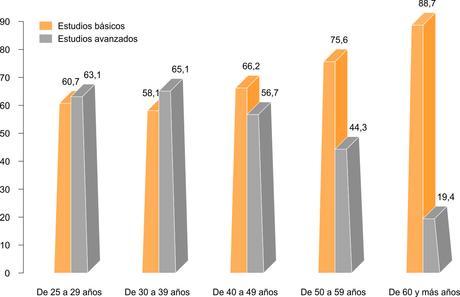
Tenía pensado encuadrar esta entrada en la sección dedicada al freelance, pero viendo que me va a salir un artículo un tanto cargado de protesta por mi parte, creo que voy a llevarla también a la sección de reflexión. Así tendrá el gran honor de ser el primer artículo que vale para dos cosas. Cuando pienso en la cantidad de gente que trabaja como freelance, puedo ver que cada vez se va llenando más de una silenciosa minoría perteneciente a la generación burbuja, una generación entre los 70 y los 90 (más o menos), que resulta ser la más preparada de la historia, pero paradójicamente también la menos querida. Ofertas de trabajo en las que se exige dos años mínimo de experiencia para poner a funcionar una lavadora (no voy a poner ejemplos concretos, pero haceos una idea de que ejemplos absurdos como el de la lavadora los hay a patadas); becas y más becas de prácticas de trabajo por las que nunca te pagan, pero oye, es experiencia y hay que aprovecharlo; y por supuesto, como hay que seguir presumiendo de que queremos tener a la generación mejor preparada de la historia, hay que sacar estudios y cursos que antes ni existían porque no eran necesarios. Miedo me da el día en el que sea necesario estudiar para que por medio de un título la gente sepa que sabes usar una lavadora porque has estudiado para ello (por poner un ejemplo muy loco).
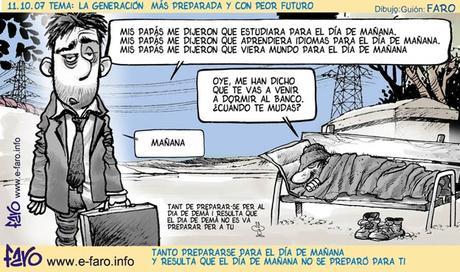
El caso es que el número de jóvenes que en teoría saben de todo, porque hay estudios para todo, crece a un ritmo muy superior a las oportunidades laborales disponibles, formándose de esta manera una burbuja tan grande como la inmobiliaria del 2008. Aunque hable sobre todo de jóvenes, soy perfectamente consciente de que alguien que ronde los 40 o más se vería incluso en una situación mucho más complicada que si tuviera 20 años, pero en mi caso conozco sobre todo lo que está pasando en la franja de 20 a 30 años. Sintetizando todo esto, la generación burbuja actual es esa a la que engordan como un cerdo a base de estudios, para luego acabar llevándola al matadero del paro, o de los contratos laborales precarios, o a la emigración no deseada. Cuando aquí dije que lo normal es que los jóvenes se dediquen a vivir más en internet que en el mundo real, es porque realmente no hay opciones fuera del mundo virtual. El primer "trabajo pagado" que encontré (en otra entrada explicaré por qué lo pongo entre comillas) fue a través de la red, y era un trabajo como traductora audiovisual freelance; trabajo que mantengo, por cierto. Si hay una cosa que me ha chirriado mucho de España, es que hay algún tipo de obsesión por convencer a los jóvenes para que estudien oposiciones. Y esto no solo se decía en época de crisis, sino que ya viene de antes. Si eso no te gusta, puedes trabajar de camarero/a o de comercial, pero no busques mucho más porque no lo vas a encontrar. Esto da pie a pensar en dos cosas: la primera, España no es país para emprendedores; segunda, si emprendes, que sea en hostelería. Que no se me malinterprete, no es que vea mal estudiar oposiciones, ni que se emprenda en hostelería; lo que veo preocupante, es que solo se apueste por tres cosas contadas, porque llegará un momento en el que el país se estanque y no avance, habrá tantas cosas de lo mismo que la competencia será brutal y el hastío por las mismas aún más, además de dejar al país en una situación muy vulnerable si, por lo que sea, uno de sus caballos de carrera deja de dar dinero.
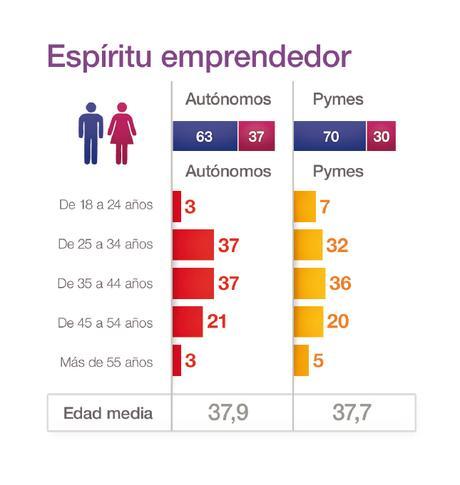
Como era de esperar, la generación burbuja se está pasando al sector freelance de forma cada vez más rápida, y tal vez sea aún arriesgado decir que probablemente sea el empleo del futuro, pero yo no lo veo tan mal. Creo que hoy por hoy, el trabajo freelance no se ve como un trabajo serio en España, más bien como un trabajo para ganar unos ahorros; entiendo esta postura perfectamente, porque no es serio que haya tanta gente dispuesta a vender sus trabajo a precio regalado. Obviamente, esto nadie se lo toma en serio. Ahora, teniendo en cuenta que cada vez más gente ve internet como una oferta de empleo en sí, hay una hartura generalizada por la situación laboral, y la revolución tecnológica sigue imparable, repito la pregunta que había hecho anteriormente: ¿cómo no va a haber más interés en el mundo virtual que en el real? Todos los comentarios son bienvenidos.
Fuente de las imágenes:
http://www.informe-espana.es/la-generacion-mejor-preparada-de-nuestra-historia/
http://www.blogresponsable.com/2010/05/el-futuro-de-la-generacion-mas.html
http://www.acens.com/blog/el-92-de-los-emprendedores-espanoles-creen-que-espana-no-es-un-pais-propicio-para-emprender.html----------
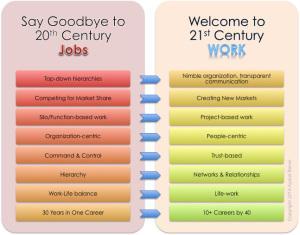
First af all, I have to say that this article has to do with the Spain context, so maybe you ignore or you can't feel identified with some of the examples, but I bet you can understand the situation a little better after reading this. I was thinking about placing this entry into the freelance section, but seeing that I'm going to write an article with a little bit of protest for my part, I think I'm going to take it to the reflection section too. It will have the great honour of being the first article which is useful for both sides. When I think about all the people who work as freelancer, I can see that it's starting to be filled with an unvoiced minority which belongs to the bubble generation, a generation between the 70s and the 90s (more or less) which is the best-educated generation of history, but also the least wanted paradoxically. Job offers where is required to have two years of experience to operate a washing machine (I'm not going to write specific examples, but you can get a better understanding of such absurdities, and there are plenty of them); more and more scolarships for internships without a salary, but that's experience and you are supposed to take advantage of it; and of course, we want to show we have the best-educated generation of history, so we need to create studies that had never existed before because they were not necessary. I'm afraid it will come the day in which you will need to have a diploma to prove you know how to handle a washing machine (just to pose a really crazy example)
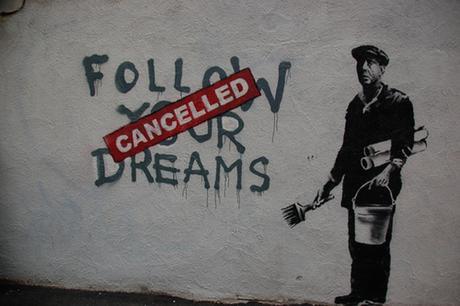
The thing is the number of young people that know about everything, because there are studies about everything, is growing on a larger scale than available jobs, creating a bubble as big as the housing bubble of 2008. Althoug I'm talking about young people specially, I'm perfectly aware that someone in their 40s, or more, can be even within a more difficult situation than if they were 20, but I just know what's going on into the 20-30 age group. Synthesising all this, the current bubble generation is the one which is being fattened like a pig to be led to the slaughterhouse of unemployement, or to precarious labour contacts, or to unwanted emigration. When I say here that it's normal that young people are living more online than in the real world, is because there are no options out of the virtual world. The first "paid job" I found (I will explain in other post why I use quotations marks here) was online, and it was a job as a freelance subtitler; by the way, I still work on that. If there's a thing that really annoys me about Spain is that there's a kind of obsession in convincing young people to study to be civil servants. And that was very common not just during the period of crisis, but it comes before all that. If you don't like it, you can work as a waiter/waitress or salesman/woman, but don't look for anything else because you are not going to find it. This gives rise to these thoughts: first, Spain is not a country for entrepreneurs; second, if you undertake a project, it must be within the catering industry. Don't get my wrong, I don't think is something bad to study competitions, nor working in the catering industry; what I think is worrying is trusting in just three things because there will be a moment when the country is stagnant without progress, all the things will be the same so the competition will be really rough and people will get tired of that eventually; moreover, the country can be placed in a vulnerable position if, for some reason, one of its strong points stops giving money.
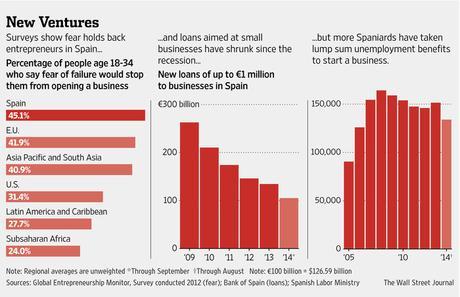
As might be expected, the bubble generation is going towards the freelance marketplace faster, and maybe it's still risky to say that it will be the job of the future, but I don't see it so wrong. I consider that nowadays, the freelance work is not treated as a serious job in Spain due to the fact that it's seen as a job just for savings; I understand this point of view perfectly because it's not serious how someone give their work away for low prices. It's obvious that no one is going to take it seriously. Now, considering that more peope see internet as a job offer itself, people are sick and tired because of the employment situation, and the technology revolution is still unstoppable, I repeat the question I have posed previously: how could not be more interest in the virtual world than in the real one? All comments are welcome.
Images source:
https://pedroagarcia.wordpress.com/2014/07/26/conseguir-empleo-es-hacer-historia-que-le-falta-a-la-generacion-mas-preparada-y-que-le-sobra/
http://theconversation.com/gen-y-cant-i-have-everything-i-want-and-now-3440
http://www.wsj.com/articles/new-entrepreneurs-find-pain-in-spain-1417133197----------

